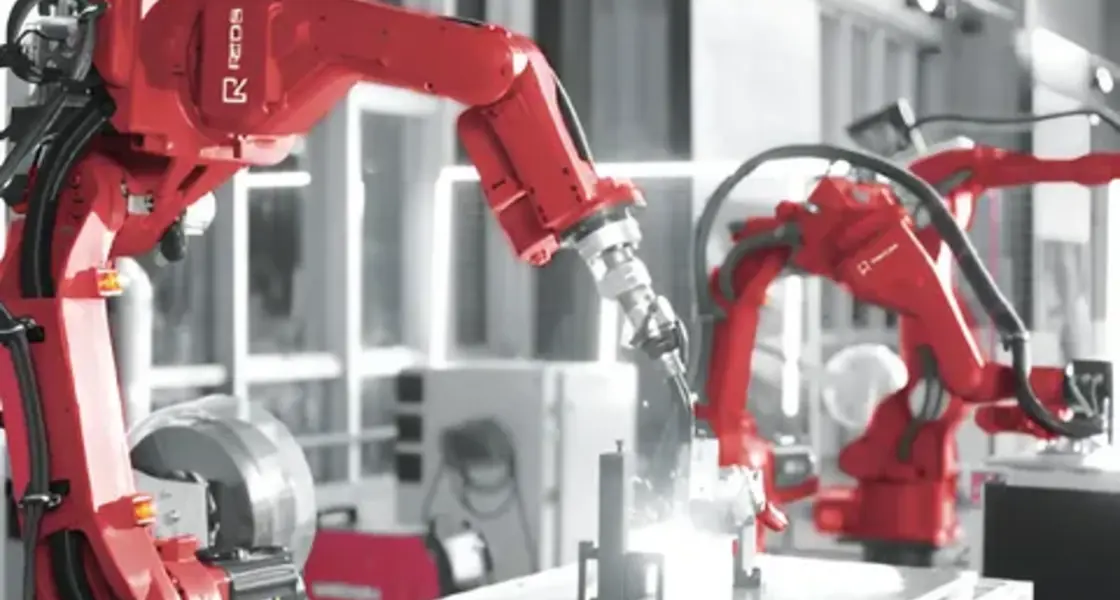Let’s talk about electric vehicles because it’s everywhere now.
The electric vehicle (EVs) are not just an exclusive alternative or “luxury eco” option. They’re fast becoming mainstream and the technology that drives their development is growing at lightning speed.
If you’ve ever wondered about what makes EVs are, what they’re doing to improve or what’s keeping them from progressing This article has you covered.
When you’re finished reading this article, you’ll be able to understand the reason EVs technology is a game changer to America. U.S. and why it’s altering the way we travel and live our lives, as well as think about transportation.
What is EVs Tech?
Let’s first look at what the term “EVs” actually is.
It’s everything that helps electric vehicles function and thrive and thrive, which includes:
- Battery Technology is the core of all EVs.
- Charging Infrastructure Fuel stations that will be in the near future.
- Autonomous Driving: Technology for self-driving vehicles is being boosted by electric vehicles.
- Energies Management Systems: How EVs are integrated into grids of power.
It’s not just about electric vehicles, but also all about creating an entire ecosystem.
The U.S. is all in. With programs like those of EV tax credit and the billions invested in charging infrastructure, EVs aren’t just an green goal, but they’re also a crucial part of the future of transportation.
Why EVs Tech is Exploding Right Now
1. Batteries are Getting Better and Cheaper
Let’s face it: Batteries were the bottleneck in the past.
They were costly heavy and bulky, and they did not last for long.
What’s next?
- The advancements in lithium-ion technology have reduced expenses by more than 85 percent over the past decade.
- Solid-state batteries are now on the future, promising a higher effectiveness.
For consumers that are looking to buy EVs, this translates into lower EV prices and more ranges. These are two of the most significant obstacles to their adoption.
2. Charging Infrastructure is Growing
Range anxiety – have you ever heard of it?
You’re worried that your EV might get a battery drain before you have an outlet.
With the massive investments made in charging infrastructure, this anxiety is rapidly disappearing.
- The Level 3 Fast Chargers are able to boost a battery up to 80% in 20-30 minutes.
- Companies such as Tesla, Electrify America, and ChargePoint are creating networks across the nation.
In the near future, charging should be just as easy as stepping into the gas station.
3. Automakers are Going All-In
Take a look around.
All major automobile manufacturers are getting into the field of electric vehicles.
- Ford has the F-150 Lightning.
- GM has begun rolling out electrical Hummers as well as Chevy Bolts.
- Even premium brands like Porsche as well as BMW are battling it out in the field of electric vehicles.
It’s the future.
How EVs Tech is Changing Transportation
Here’s where it gets exciting.
1. Smarter, Safer Cars
The technology behind EVs isn’t only about batteries, it’s about the intelligence.
Electric vehicles are the leaders for autonomous vehicle driving.
- AI and sensors Tesla EVs are equipped with sensors and AI to steer traffic and avoid collisions. They can also park their vehicles.
- Over-the-Air Updates: Consider your car as a smartphone that is always getting better by software updates.
For the consumer that are concerned about safety, this is safer roads and more intelligent driving.
2. Cleaner Cities
The positive environmental effects of EVs are enormous.
- Zero Tailpipe Emissions: No gas, no diesel, just clean energy.
- Reduced Noise Pollution: EVs are so quiet that you may think you’ve forgotten that they’re on.
- Green Energy Integration: Pair EVs with renewable energy and you’ll get an opportunity to win.
As the technology for electric vehicles expands urban areas will become more peaceful, quieter and more comfortable.
3. The Rise of Vehicle-to-Grid (V2G) Tech
Here’s an interesting idea The electric vehicle could be able to power your home.
- What it does How it works: V2G technology lets electric vehicles transmit energy back to the grid during times of high demand.
- Why is this important: It ensures stability to power grids and also helps stop blackouts.
Imagine your car running the lights on in an EVs-related storm. That’s EVs technology at its very best.
Challenges Facing EVs Tech
Let’s get real.
As incredible as the EVs technology is however, it’s not without its challenges.
1. Charging Infrastructure Needs to Scale Faster
Although progress is being made however, areas in rural areas and smaller cities are still without charging stations.
Some drivers are hesitant to switch.
2. Battery Recycling and Sustainability
The EV batteries are fantastic when they last however, what happens if they stop working?
- The issue is that recycling lithium and other minerals is complicated and expensive.
- The solution: Businesses are looking into “second life” uses and more efficient recycling strategies.
3. High Initial Costs
Even with the federal incentive, EVs are still expensive to purchase in the beginning.
As production grows and batteries become less expensive This limit will continue to decrease.
EVs Tech: Looking Ahead
Future of EVs technology is bright and it’s on the way.
Here’s what we can anticipate in the coming five to 10 years:
1. Solid-State Batteries
These are the next huge technological breakthrough in battery technology.
- More efficient, lighter, and quicker to charge.
- It could double the EV range in a single night.
2. Wireless Charging
Think about parking the car, and charging it automatically, no cables are required.
- Testing is underway in several U.S. cities.
- Ideal for fleets such as taxis and delivery vehicles.
3. Autonomous Electric Fleets
Think of self-driving fleets of EVs that can handle ride sharing delivery, deliveries, and so on.
Companies such as Waymo as well as Cruise are currently testing this.
FAQs About EVs Tech
1. What is the EVs tech?
The term “EVs tech” refers to the technologies that support and power electric vehicles, such as batteries, charging infrastructure and the most advanced software.
2. Are EVs less expensive to maintain than gas-powered cars?
Yes. Electric vehicles have fewer moving parts, which means maintenance costs are considerably lower over the course of time.
3. How long will it take to charge an electric vehicle?
- The Level 2 charger for your home can take 6-8 hours.
- Fast chargers can deliver an 80% charge within 20-30 minutes.
4. Are EVs actually better for the planet?
Yes, particularly when they are charged using renewable electricity. They don’t emit tailpipe emissions and also have the lowest carbon footprint over their lifetime.
EVs Tech: Driving deeper into the Revolution
Let’s get all-in on electric vehicle technology. Not just the basics, but the impact it’s impacting on industries, infrastructure as well as the way we live.
From the electric vehicle in your driveway, to the grid that power it, electric vehicles are linking the dots to create an eco-friendly, smarter future.
It’s clear that the United States is leaning heavily towards this trend and we’ll discuss the reasons why it’s important to all of us.
The Big Picture: Why EVs Tech is a Movement, Not Just a Market
The use of EVs isn’t just about changing gas to electricity.
It’s about redefining how we think about energy, mobility and sustainability as all.
Here’s the issue:
1. Climate Goals on the Line
Transportation accounts for 27 percent the U.S. greenhouse gas emissions–the most of the sector.
Making the switch to EVs could reduce that amount dramatically, particularly when combined with renewable energy sources.
- The Tech Advantage of EVs: Unlike gasoline cars, EVs can be powered by renewable energy sources like wind or solar.
- Example: California leads the way by requiring that all new vehicles sold in the state be electric by 2035.
This is much more than an occurrence; it’s essential to achieving the climate targets.
2. Reshaping Energy Consumption
Electric vehicles aren’t just consuming energy; they’re changing how the energy is distributed.
- Electric Vehicle Charging and Renewable Energy Solar panels on houses as well as wind farms are the main factors in the powering of EVs.
- Demand shifts: Utilities are working with EV owners to charge off-peak hours, which reduces demand on grids.
The technology behind EVs is helping to create smarter energy systems that can benefit all people not just electric vehicle drivers.
Diving Deeper: Core Components of EVs Tech
There’s been a lot of talk about chargers and batteries But the tale does not end there. Let’s take a look at the whole story.
1. Batteries: The Powerhouse of EVs Tech
Everything begins at the beginning with the battery. This is the reason that makes EVs effective, economical and attractive.
Lithium-Ion Dominance
- The reason it’s king It’s light, energy-dense and rechargeable for hundreds of times.
- Drawback A drawback: Mining cobalt and lithium creates ethical and environmental concerns.
What’s Next: Solid-State Batteries
They are set to change the marketplace.
- Faster charging.
- More range per charge.
- Securer and less prone overheating.
2. Charging Infrastructure: The Gas Station 2.0
Without charging stations, EVs can’t go mainstream.
Public Networks Are Exploding
- Tesla Supercharger Network: Over 45,000 across the globe, and plans to expand them to non-Tesla cars.
- Electricity in America by establishing coast-to-coast coverage by using high-speed chargers.
Home Charging: The Game Changer
- 1. Plug in any outlet. Slow but reliable.
- Level 2: More speedy and efficient when you use dedicated chargers for electric vehicles.
- Solar Combining: Solar panels with electric vehicles make energy use even more sustainable.
3. Software: The Brains Behind EVs Tech
Hardware is just one component in the whole. Modern software is what can make EVs better and faster.
Over-the-Air Updates
- the Tesla and Rivians are constantly improved by periodic software upgrades.
- Add features, fix bugs or even extend battery life with no dealer visit is required.
Smart Navigation
- Electric vehicles use AI to guide drivers along efficient routes that minimize the traffic and show nearby charging stations.
Industries Impacted by EVs Tech
This isn’t only about automobiles. All industries are changing to meet the demands of electric automobiles.
1. Oil and Gas
Let’s face it, E-Volatiles pose a threat Big Oil.
- Gas stations are becoming multiple-use hubs for charging.
- Businesses are investing in services that are EV-specific to ensure they remain current.
2. Auto Manufacturing
Each major manufacturer is shifting towards electric.
- Ford has pledged $50 billion for EV development by 2026.
- Toyota has launched its new bZ4X and various electric vehicles to compete in a rapidly growing market.
- Startups such as Rivian are pushing the boundaries of innovation by launching electric vehicles and SUVs that are designed to be used in the wild.
3. Renewable Energy and Utilities
The technology of EVs is directly connected to renewable energy sources.
- Solar and Wind is growing faster than EV demand to meet.
- Smart Grids Integration of EVs to manage demand and supply efficiently.
The Benefits of EVs Tech for Drivers
Making the switch to an electric vehicle isn’t just beneficial for the environment, it’s also good for your lifestyle and wallet as well.
1. Lower Operating Costs
- No more gasoline. Electricity is less expensive per mile.
- No more maintenance issues, no maintenance issues with exhaust systems or oil changes to be concerned about.
2. Tax Incentives
- The federal government gives up to $7,500 tax credits to eligible EVs.
- A number of states also offer their own rebates, such as the California’s Clean Vehicle Rebate Program.
3. Better Performance
- Instant torque can make EVs quicker off the line than gasoline cars.
- More peaceful and smoother journeys are an added benefit when you have a long drive.
Future Challenges: What EVs Tech Needs to Overcome
We’re still not there. Adoption is on the rise however, there are still obstacles to overcome.
1. Affordability
Many people cannot afford an SUV that costs more than $40,000 including incentives.
- Solution: Prices for EVs are falling as batteries get cheaper and production scales increase.
2. Rural Charging Access
Most chargers are located in urban zones. The need to expand coverage in rural areas is vital to make sure that the chargers are widely used.
3. Battery Recycling and Waste
The problem of used batteries is a growing environmental problem.
- Solution: Companies such as Redwood Materials are scaling battery recycling technology.
FAQs About EVs Tech
1. How long will batteries from EV last?
Most of the time, it’s between 8-10 years, (or 100,000-150k miles) before the significant degrading.
2. Are EVs able to handle long journeys on the road?
Yes! A lot of EVs have ranges of over 300 miles. Fast-charging stations are readily available along major highways.
3. Are electric vehicles more expensive than gas vehicles?
The upfront costs may be higher, but the lower maintenance and operating costs make EVs less expensive over time.
What’s Next for EVs Tech?
Future of EVs technology is rapidly evolving. Here’s what we’re likely to witness in 2030:
- Electric vehicles are dominating sales of new cars More than 50% of the vehicles sold in the U.S. will likely be electric.
- New breakthroughs in battery technology More ranges, and quicker charging.
- Intensified integration of renewable energy sources: Electric vehicles will be an integral component of the grid of energy.
Final Word
EVs technology doesn’t just concern automobiles. It’s about changing the way we move around, power the way we live, as well as take care for our earth.
The future is here, and regardless of whether you’re an electric vehicle owner, a fanatic or simply curious, this technology is changing everything we thought we knew about transportation.
It’s quick, it’s tidy and is going to stay.
Are you ready to tap into the future?
Because of EVs technology the future is electric and it’s just beginning.


